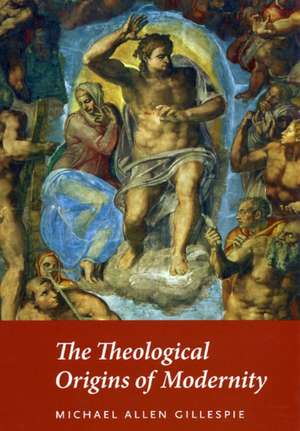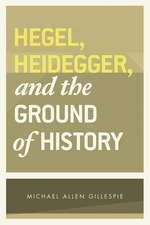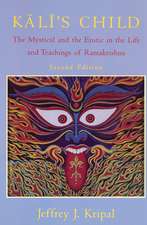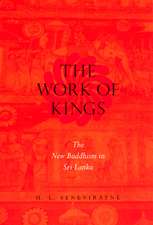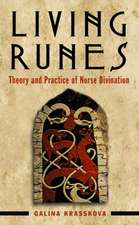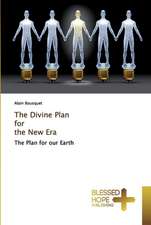The Theological Origins of Modernity
Autor Michael Allen Gillespieen Limba Engleză Paperback – 15 aug 2009
Exposing the religious roots of our ostensibly godless age, Michael Allen Gillespie reveals in this landmark study that modernity is much less secular than conventional wisdom suggests. Taking as his starting point the collapse of the medieval world, Gillespie argues that from the very beginning moderns sought not to eliminate religion but to support a new view of religion and its place in human life. He goes on to explore the ideas of such figures as William of Ockham, Petrarch, Erasmus, Luther, Descartes, and Hobbes, showing that modernity is best understood as a series of attempts to formulate a new and coherent metaphysics or theology.
“Bringing the history of political thought up to date and situating it against the backdrop of contemporary events, Gillespie’s analyses provide us a way to begin to have conversations with the Islamic world about what is perhaps the central question within each of the three monotheistic religions: if God is omnipotent, then what is the place of human freedom?”—Joshua Mitchell, Georgetown University
“Bringing the history of political thought up to date and situating it against the backdrop of contemporary events, Gillespie’s analyses provide us a way to begin to have conversations with the Islamic world about what is perhaps the central question within each of the three monotheistic religions: if God is omnipotent, then what is the place of human freedom?”—Joshua Mitchell, Georgetown University
| Toate formatele și edițiile | Preț | Express |
|---|---|---|
| Paperback (1) | 233.22 lei 6-8 săpt. | |
| University of Chicago Press – 15 aug 2009 | 233.22 lei 6-8 săpt. | |
| Hardback (1) | 587.86 lei 6-8 săpt. | |
| University of Chicago Press – 15 mai 2008 | 587.86 lei 6-8 săpt. |
Preț: 233.22 lei
Nou
Puncte Express: 350
Preț estimativ în valută:
44.63€ • 46.42$ • 36.85£
44.63€ • 46.42$ • 36.85£
Carte tipărită la comandă
Livrare economică 14-28 aprilie
Preluare comenzi: 021 569.72.76
Specificații
ISBN-13: 9780226293462
ISBN-10: 0226293467
Pagini: 400
Dimensiuni: 152 x 229 x 25 mm
Greutate: 0.54 kg
Editura: University of Chicago Press
Colecția University of Chicago Press
ISBN-10: 0226293467
Pagini: 400
Dimensiuni: 152 x 229 x 25 mm
Greutate: 0.54 kg
Editura: University of Chicago Press
Colecția University of Chicago Press
Notă biografică
Michael Allen Gillespie is the Jerry G. and Patricia Crawford Hubbard Professor of Political Science in Trinity College of Arts and Sciences and professor of philosophy at Duke University. He is the author of Hegel, Heidegger, and the Ground of History, and Nihilism before Nietzsche, both published by the University of Chicago Press.
Cuprins
Preface
Introduction
1 The Nominalist Revolution and the Origin of Modernity
2 Petrarch and the Invention of Individuality
3 Humanism and the Apotheosis of Man
4 Luther and the Storm of Faith
5 The Contradictions of Premodernity
6 Descartes’ Path to Truth
7 Hobbes’ Fearful Wisdom
8 The Contradictions of Enlightenment and the Crisis of Modernity
Epilogue
Notes
Index
Introduction
1 The Nominalist Revolution and the Origin of Modernity
2 Petrarch and the Invention of Individuality
3 Humanism and the Apotheosis of Man
4 Luther and the Storm of Faith
5 The Contradictions of Premodernity
6 Descartes’ Path to Truth
7 Hobbes’ Fearful Wisdom
8 The Contradictions of Enlightenment and the Crisis of Modernity
Epilogue
Notes
Index
Recenzii
"This book is an excellent complement to Charles Taylor's A Secular Age and a powerful counterpoint to Mark Lilla's The Stillborn God. All three hold that the story of modern philosophy is both superficial and hollow if its theological/metaphysical components are denied. Highly recommended."
"The Theological Origins of Modernity is not just informative; it is insightfully recuperative as well—helping us to understand ourselves better in the present. Though Gillespie only reaches our contemporary situation in his last chapter, we might hope that, incomplete as it unavoidably is, that chapter might form the nucleus of a successor work. At the end of his current book we are more than assured that Gillespie is up to the task."
"In this rich and dense book, [Gillespie] is self-consciously trying to correct the 'standard' understanding of the origin of modernity. Rather than being the 'victory of secularism,' modernity, he says, is a series of attempts to grapple with fundamental theological issues."
